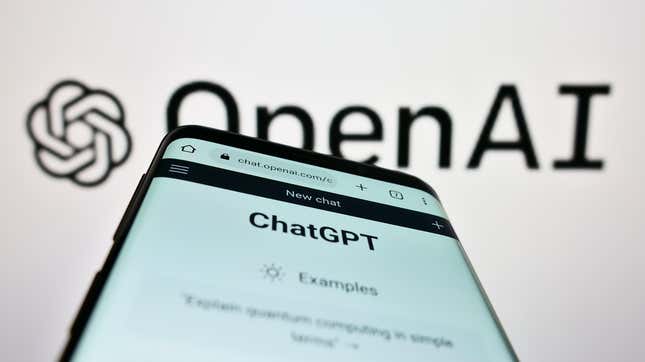
As AI hysteria continues to pick up steam, OpenAI seems to be feeling the heat from its competitors. After appealing to the U.S. Patent and Trademark Office to speed up the process of trademarking “GPT,” the office denied the company’s request just last week.
As TechCrunch points out, OpenAI applied in December to trademark the “GPT” in the company’s own ChatGPT, which stands for “Generative Pre-trained Transformer.” Last month, OpenAI asked the USPTO to hasten the process of trademarking the acronym, perhaps wanting to secure its brand after a barrage of GPT clones have been announced or launched, including a chatbot from Elon Musk called “TruthGPT.” Unfortunately for OpenAI, the patent direction dismissed the company’s petition last week, forcing OpenAI to wait out the process just like the rest of us.
Jefferson Scher, an attorney and chair of intellectual property group Carr & Ferrell’s trademark practice group, told TechCrunch that the trademarking process could now force OpenAI to wait another five months. However, Scher said there could be a light at the end of the tunnel for OpenAI. He explained to the outlet that it’s highly likely that OpenAI will receive the trademark in due time, despite the T standing for “Transformer,” which is the same name as a neural network that Google announced in 2017. Nevertheless, OpenAI persisted.
[huge_it_slider id=”1″]
